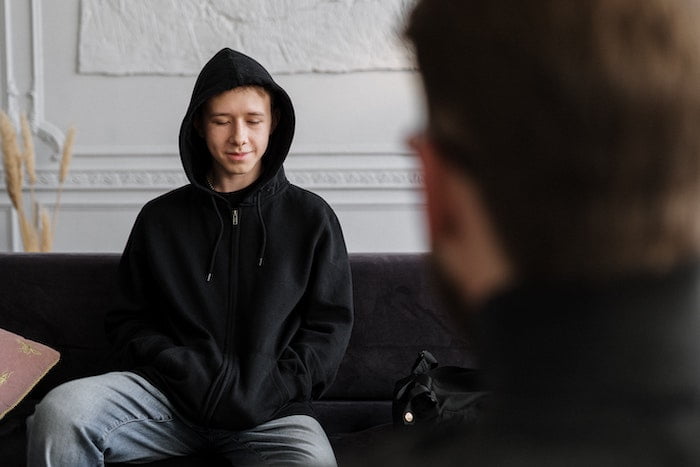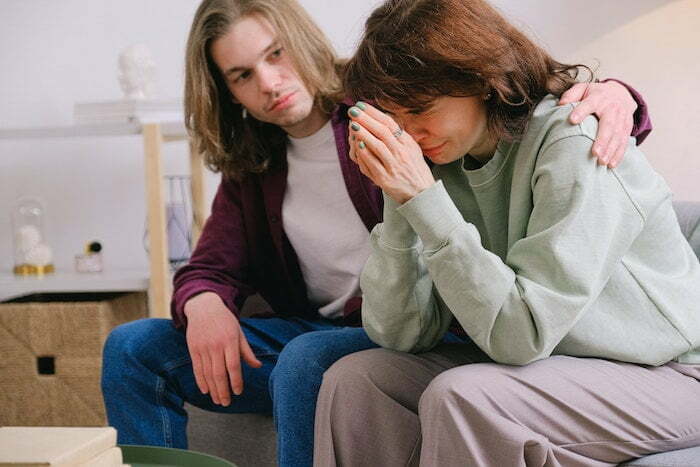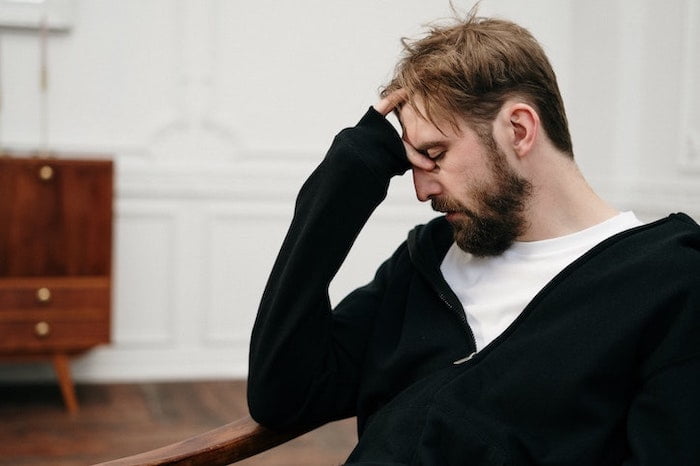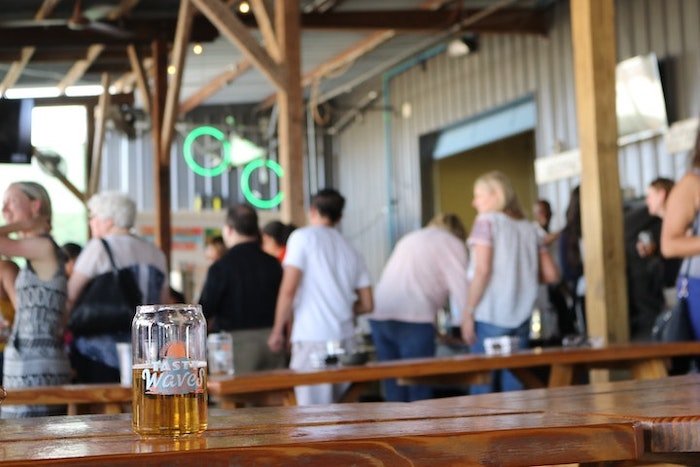Drug & Alcohol Rehab in Barnet
A chemical addiction, whether drugs or alcohol, is a chronic brain disease. If someone is suffering from addiction, they are unable to operate daily tasks without experiencing high levels of craving for drugs or alcohol.
The level of craving can reach intolerable levels and can create serious discomfort. Addiction has many physical and mental symptoms, ranging from depression, lethargy, nausea, insomnia, and it can lead to death if left untreated.
If you think you are suffering from addiction, it is best to act as soon as you can. Although drug and alcohol addiction is not technically curable, it is both preventable and treatable with the right facilities and treatment.
Many people think that you have to be suffering profoundly to seek support from drug and alcohol rehab. However, this is not the case, and you should seek help as early as possible to prevent physical and mental damage. It is important to be proactive rather than passive while facing addiction.
To begin your recovery journey today, call our 24-Hour Helpline: 0800 326 5559
Barnet Drug and Alcohol Profile

Barnet council’s corporate plan for 2024 aims to deliver a maintained borough when it comes to drug and alcohol misuse.1 The provision of drug and alcohol facilities is becoming a top priority, restoring a sense of faith and well-being back into the community.
For young individuals using drugs or alcohol in a negative way, Barnet council are looking to provide strategic information such as the Westminster Drug Project and the Substance Misuse Service at the Denis Scott Unit in Edgeware hospital.2
Estimates:
- The number of young individuals using alcohol in Barnet was around 2434 between the ages of 11-15 years old in 2018.
- The drug that appears most prevalent was Cannabis, as it was reported in around 28% of drug treatments. Alcohol made up around 15% of these treatments, with smaller numbers from cocaine and heroin in 2017.
- Regarding opiates, there were around 129 found heroin users in Barnet and 258 cocaine users in 2016/17
Other substances:
- Solvents such as Nitrous Oxide – 2.8% of treatments in 2014
- Psychoactive substances – 0.7% of drugs used in 2014
The actual number of treatments in Barnet for drugs and alcohol has risen between 2016 and 2018. As a result, the criminal justice service has increased referrals to health and social services, aiming to rehabilitate the younger generations of Barnet.
The majority of those seeking treatment:
- 16-20 years old
- Identify as white
- 44% were in alternative education
- 3% were unemployed
- A high percentage were carers for children
The strategy for the Borough council has themes of demand reduction and restricting supply. To start this, we must understand the very basics of drug and alcohol addiction.
Addiction Signs and Symptoms

There are overarching signs of addiction, regarding the inability to control your use, and feeling concerned about your constant desire to use. This also refers to withdrawals. Withdrawal is the biggest sign of dependency.
As your body and brain start to get used to the substance or alcohol, your body struggles without it. Your tolerance will increase, and you will require more, more often.
‘Addiction and alcohol can hijack your brain’.3 This is the cycle of addiction, also referred to as the disease model of addiction. Cravings and addictions can cost more than just a high, it can cost relationships and cause destructive behaviours.
As a long-lasting and complex disease, this can help users explain why they are more likely to be addicts in the footsteps of parents or based on where they grow up. The common misconception is that addiction is a constant choice, but this is a myth.
The brain is altered by addiction, therefore it takes a massive change and constant work to restore the brain back to its original state. Clearly, the more and longer a substance is used, the more work it will take to get your brain back from being destructive and prevent the fall into relapse.
Addiction hijacks the brain, destroying the thoughts and processes that help us survive and make rational decisions. A healthy standard brain will reward binary good behaviour, such as exercise and sex, and motives the body to repeat those.
Once you become addicted to the feeling of euphoria that drugs or alcohol give you, these brain processes work against you and side with the substance. The circuits rewire themselves, making you feel depressed, anxious, and emotional when you do not give yourselves the euphoric effects of substances.
Your body is in tune with your mind, and you will begin to shake and feel nauseous and vomit if you do not give the addicted body what it so requires. This is when you become dependent on drugs and alcohol to prevent those horrible withdrawals, instead of the original sense of euphoria you got at the beginning.
Addiction runs in the family, and in the environment you grow up in. This can influence an array of social factors, including the likes of family law. Further, the more you are exposed to drugs and alcohol at a younger age, the more likely it is that you will become an addict yourself.
What happens if you believe someone to be addicted? The Cage Questionnaire is a simple screening process for alcohol and drug problems: 4
- Have you ever felt that you needed to Cut down on your drinking?
- Have people Annoyed you by critiquing your drinking?
- Have you ever felt Guilty about your drinking?
- Have you ever felt that you needed to drink first thing in the morning, to steady your nerves or to get rid of a hangover?
This is scored from 0 for NO and 1 for Yes. If you score more than 2 for the 5 questions, it is classified as medically significant. If you score highly, what’s the first step? Intervention.
To begin your recovery journey today, call our 24-Hour Helpline: 0800 326 5559
Pre-Rehabilitation: Intervention and the Craft Approach

Intervention is classed as family or friends taking a proactive approach, in order to persuade the user to enter helpful treatment and admit they require professional help. This effort is collaborative; all those affected by the use of drugs or alcohol are required to put in the effort to persuade the user, by explaining how it affects them all but not in a way that provokes or upsets the user.
It is not their fault, addiction is a disease, and intervention helps solidify this view.
Individuals that are using tend to feel powerless in their struggle, a never-ending cycle they cannot escape from. This intervention will aim to get them the help they need, by entering a safe space they are comfortable in and making them feel safe.
Difficult emotions will arise, and this is not a time to make them feel at fault for what is happening. Explain clearly what the situation is and display what type of help is required.
Try not to resent them for what they have done, it is a parallel situation for everyone, and the struggle with misuse is universal, despite our greatest efforts.
The CRAFT intervention is an approach to substance abuse, standing for:
Community
Reinforcement
Family
Training
This non-conventional approach is designed to help reduce substance abuse, even without the direct cooperation of the actual user. This is standardly successful on a 3-1 margin, where concerned others (CO) are motivational, rather than confrontational.
This approach provides tools for the COs to shift the balance of favour to non-using and hopefully entering treatment.
The main goals of the CRAFT approach:
- Increase the happiness of COs, regardless of whether the patients enter the required treatment or not
- Decrease the user’s substance use, partially or altogether
- Persuade the user into treatment
How can COs reach these goals? (facts, feelings and future)
- Concerns should be brief in approach, whilst remaining positive and hopeful
- Use the terms ‘I see’ or ‘I hear’ to refer to specific behaviours of the user
- Describe their feelings about how they feel in the situation
- Offer positive futuristic alternatives
The aim of craft is not to nag, or pry, or resent the user. This process is an alternative form of intervention, where an understanding of information and help can be a motivational tool. This works alongside values and beliefs, heightening the chances of the user entering treatment, for the benefit of all of those involved.
If you manage to be successful, like many CRAFT approaches, here is some needed information on cost, availability and types of rehabilitation and therapy.
Rehab for Drug and Alcohol Misuse: Barnet

The common misconception with regard to rehabilitation is facilitated by social media and celebrity misrepresentation. The truth is, there are different kinds to suit different needs and budget requirements.
Different types of rehabilitation:
Outpatient: you continue to reside in the comfort of your own home but attend routine meetings and therapy sessions at a dedicated facility.
Inpatient: If your addiction requires constant battling, you will temporarily move into the treatment facility for your drug and alcohol dependency. This includes following a strict regime, with a heavily structured plan and therapy sessions.
Whilst these are both parallel in the amount they appear to help, it can be necessary to seek inpatient treatment if you require more care and treatment. Yet this can be more expensive and time-consuming, but this is for the benefit of your addiction, and those around you.
Both treatments have alternative prices, whereas outpatient facilities are generally funded by the NHS following appointments with your GP and a selection process for your requirements. On the other hand, inpatient treatment is extremely difficult to gain funding for or receive through the NHS.
This is more likely to require private funding but can cost as much as £500 a day. These treatments usually last for around 28 days, but some centres only change £1000 a week, so it is imperative that you undertake research as to which facility and treatment plan will suit you and your needs.
Prices and lack of funding can be a deterrent to seeking help, but the NHS offers a plethora of support and can sometimes refer you to a residential facility depending on your level of addiction.
If you do seek inpatient treatment and don’t receive NHS funding or approval, you can get help from insurance providers or payment plans from the facilities.
Drug use costs the UK economy almost £11 billion per annum, with almost 40% of this being the result of death and health service provision.
The costs that are required for inpatient treatments usually cover:
- Residency, from 7 to 90 days
- Insurance, therapy, and medication
- Utility bills
- Food and facility maintenance
- Staff training and qualifications
Obviously, what you require will depend on the nature of addiction itself. For example, alcohol will require a detox, as well heroin addiction. However, drugs such as cocaine and cannabis aren’t physically addictive, and thus demand different treatments.
During an alcohol detox, the cost of the medication will be included in the residency fee. The binary medication for alcoholism is a Librium-based detox, also coined pharmacological intervention.
This is administered over a 10-day period, reducing intake over that time to prevent becoming addicted to the Librium itself.
Librium reduces the risk of anxiety and seizures when coming off alcohol, which is a physically demanding process. If you are an outpatient and require Librium, you will be treated by the NHS, and will be required to pay the standard amount for a prescription unless you are an exception. The usual charge is £9.35 per item. 6
With drugs such as cocaine and cannabis, this requires a different kind of treatment and therapy. Therapy is usually free for outpatients, and the NHS offer free counselling but with a weighty waiting list.
There is an array of specialised therapies available in Barnet:
- Cognitive behavioural therapy: CBT regards psycho-social intervention. This aims to reduce the harm of mental health symptoms, mostly concerned with anxiety and depression. This is based on the core beliefs of yourself, others and the future, including your behaviour based on thoughts and feelings. CBT challenges the distortions you conjure up and their associations with your negative beliefs. This rewires your train of thought, therefore changing your way of thinking and acting. Improving emotional regulation is a core aim, involving the provision of coping strategies and targeting specific thought-processing issues.
- Dialectical behavioural therapy: This is part of mindfulness. As a scientifically proven psychotherapy, previously linked to Buddhism, DBT is based on similar foundations to CBT. This targets mood and personality disorders, to reduce self-harm and substance abuse that causes suicidal ideation. This is a philosophical dialectical process, improving emotional regulation, similar to CBT. By educating those on emotional and cognitive triggers, this approach can aid coping skills to prevent undesired thoughts and behaviours.
- Motivational interviewing: MI is a way to approach behavioural change. 7 With particular attention to the language of change, this approach is designed to provoke personal motivation, along with a commitment to goals. In this atmosphere of acceptance, MI is planned to empower users and draw meaning towards the capacity to change. This is user-oriented, forming real goals that can be proven to be met. Engaging with clients in this direct manner is based on acceptance and compassion, using open-ended questions to draw reflection, affirmation, and exchange of information.
- Holistic therapies: HT is a therapy for the entirety of the body. It’s a way to balance the body, the mind and the soul rather than isolated symptoms. It’s also referred to as complementary and alternative medicine, assisting the balance of body. Holistic Therapies can come in many forms: Equine therapy, Music therapy, Art therapy, and Adventure therapy.
- Family v Group Therapy: family therapy ensures the person and the family work through the addiction together, looking to the roots of their substance abuse. This focuses on the effect of the user on both the family and the addict. Group therapy involves the likes of an array of people, but the group tend to be unknown and usually strangers. This helps the user feel more open and less vulnerable to judgement, making it easier to open up.
- Twelve-Step Facilitation Therapy (TSF): TSF is generally used in alcoholics anonymous (AA), following 12 standard steps to reach their goal of sobriety. 8
The standard 12 steps are:
- We admitted we were powerless over alcohol – that our lives had become unmanageable.
- Came to believe that a Power greater than ourselves could restore us to sanity.
- Made a decision to turn our will and our lives over to the care of God as we understood Him.
- Made a searching and fearless moral inventory of ourselves.
- Admitted to God, to ourselves and to another human being the exact nature of our wrongs.
- Were entirely ready to have God remove all these defects of character.
- Humbly asked Him to remove our shortcomings.
- Made a list of all persons we had harmed, and became willing to make amends to them all.
- Made direct amends to such people wherever possible, except when to do so would injure them or others.
- Continued to take personal inventory and when we were wrong promptly admitted it.
- Sought through prayer and meditation to improve our conscious contact with God as we understood Him, praying only for knowledge of His will for us and the power to carry that out.
- Having had a spiritual awakening as the result of these steps, we tried to carry this message to alcoholics and to practice these principles in all our affairs.
These steps are crucial for self-recovery. Another step that is important to sobriety is relapse prevention.
To begin your recovery journey today, call our 24-Hour Helpline: 0800 326 5559
Relapse Prevention Tips: Rehab Aftercare

Relapse can be easy to fall into if you don’t follow the specific steps of aftercare. Improving your mental health and wellbeing is a very important step. This can mean as little as maintaining physical exercise and a balanced diet, which in turn will structure your sleep schedule and aid the feeling of balance in mind and body.
Prevention skills are paramount to a happy and maintained recovery.
This maintains personal growth and reduces common triggers such as:
- Boredom
- Money and relationship issues
- Stress and anger
- Certain people, areas, smells etc
- Old and previous habits
Both alcohol and drug facilities educate their patients on relapse prevention techniques such as these, in order to maintain realistic goals. Ensure to keep up with mindfulness, supports groups and grounding techniques.
There are many groups such as alcoholics anonymous and narcotics anonymous that provide support to you on your road to recovery. This road will not be linear, and it is crucial that people remember that.
The only thing that is a given is that maintaining positive goals and hope will be your main motivator to get sober. Support those in need and get in touch with us today.
Reach Out To OK Rehab Today

If you think you might have an addiction and you are seeking a drug and alcohol rehab in Barnet, contact us today. At OK Rehab, your recovery is at the forefront of our priority.
We will gather your details through a free health assessment, and we can discuss the most optimal option for you.
The information and process of recovery can be overwhelming, and at OK Rehab we want to simplify things. We want to make the process of finding drug and alcohol rehab in Barnet as seamless as possible.
Call us via the number 0800 326 5559 to discuss your options. We will evaluate your circumstance and personal requirements, and we will ensure that you receive professional and high-quality support.
Why You Need Professional Help

When someone is battling an addiction, it is important to seek the right kind of support. This includes professional support at a rehab facility. Although statistics may vary, it is estimated that independent recoverers are far less successful than those who recover as an outpatient or inpatient at a drug and alcohol rehab.
Independent recovers may fall prey to their toxic environment which presents triggers for addiction, or their genetics may be a factor in their substance abuse. Additionally, they try to overcome addiction through detoxification but do not reeducate or undergo therapy to change their habits.
It is important to note that each addiction is different. Causes may vary due to environmental, social, financial, or biological factors. Often, substance use is initially used as a coping mechanism.
The Financial News reported that around 5% of people increased their consumption of drugs to cope with the impacts of the pandemic. The pandemic has affected people physically, mentally, and also financially.
Economic insecurity is rife in the community, and it can lead to extreme mental health problems. Additionally, implemented social distancing measures have increased social isolation and exacerbated mental health issues.
To begin your recovery journey today, call our 24-Hour Helpline: 0800 326 5559
Personalised Treatment

Whether someone is suffering from emotional trauma, financial or housing insecurity, addiction will vary from one individual to another. Different substances will also have different effects on individuals, making addiction a spectrum rather than a case of ‘you are’ or ‘you are not’ addicted.
Because of the sheer amount of variables, personalised treatment is required to combat addiction effectively. With our health assessment, a consultant psychiatrist will evaluate your details.
Then, at your drug and alcohol rehab in Barnet, you’ll undergo a programme that is tailored to your specific needs. This is the most effective way to maximise responsiveness to recovery.
What Is The Rehab Process?

While your time spent at a drug and alcohol rehab in Barnet may last around 28 days, recovery is a lifelong process. We need to ensure that you undergo physical and psychological repair, and are fully equipped to sustain your recovery and prevent relapses.
When you arrive at your drug and alcohol rehab in Barnet, you’ll initiate the process with a medicated detox. Here, you’ll receive medicine prescribed by an addiction physicist, as well as supervision by a team of medical professionals. The detox stage will last around 7 days, depending on the patient.
While detox is essential, it is not the solution. After you’ve completed your detox, you’ll undergo a range of therapy, from holistic therapy to cognitive and dialectical behavioural therapy. A range of therapy is applied to tackle many issues that the patient faces. Your programme will include many activities which treat the patient on a mind, body, and spiritual level.
Holistic therapy is all-encompassing and comes in many forms, from skill-based activities such as art or cooking to physically healthy activities such as yoga or reflexology, and more. On the other hand, communication and dialogue are central to cognitive behavioural and dialectical behavioural therapy.
They will equip the patient to manage intense feelings and thought processes to become more objective and composed.
The patient will also attend support groups. Here, patients can resonate with each other as they gain insight into other recoverers who are in similar circumstances.
Post-Rehab Life

While the time spent at your drug and alcohol rehab in Barnet may be over, you are still recovering. After rehab, you will be equipped and educated enough to deal with your addiction independently.
Additionally, you’ll undergo an aftercare programme and you will have access to the same facilities at your local rehab, such as support groups and therapy sessions. With a range of insight and healthy coping techniques, you will be able to sustain your recovery and life of sobriety.
To begin your recovery journey today, call our 24-Hour Helpline: 0800 326 5559
Contact Us Today
Addiction does not discriminate. Whether you suffer from the direct effects or the indirect effects of witnessing a loved one battle addiction, take action today. No one is invulnerable to the effects of addiction, and we have the option to seek support to minimise its effects. The best day to take action is today.
You can call OK Rehab via 0800 326 5559 for a free health assessment and discuss your preferences. A medical professional will evaluate your circumstance and requirements, and we will identify a suitable drug and alcohol rehab in Barnet for you.
References
- https://www.barnet.gov.uk/health-and-wellbeing/adults-health/drug-and-alcohol-misuse
- https://www.barnet.gov.uk/sites/default/files/barnet_young_people_substance_misuse_service_review_needs_assessment_refresh_2019.pdf
- https://newsinhealth.nih.gov/2015/10/biology-addiction
- https://psychology-tools.com/test/cage-alcohol-questionnaire
- https://drugfree.org/article/craft-approach-encouraging-healthy-constructive-positive-changes-family/
- https://www.nhs.uk/nhs-services/prescriptions-and-pharmacies/nhs-prescription-charges/
- https://motivationalinterviewing.org/understanding-motivational-interviewing
- https://www.alcoholics-anonymous.org.uk/about-aa/the-12-steps-of-aa





